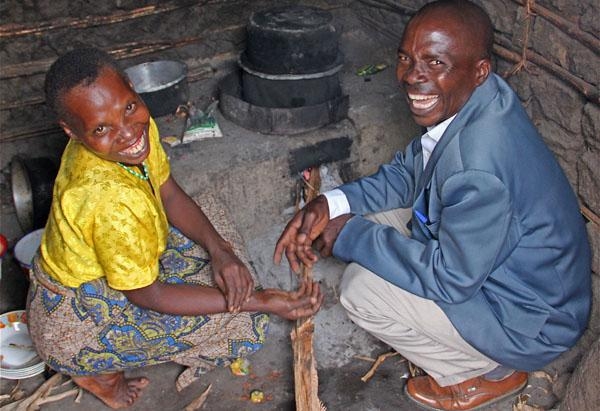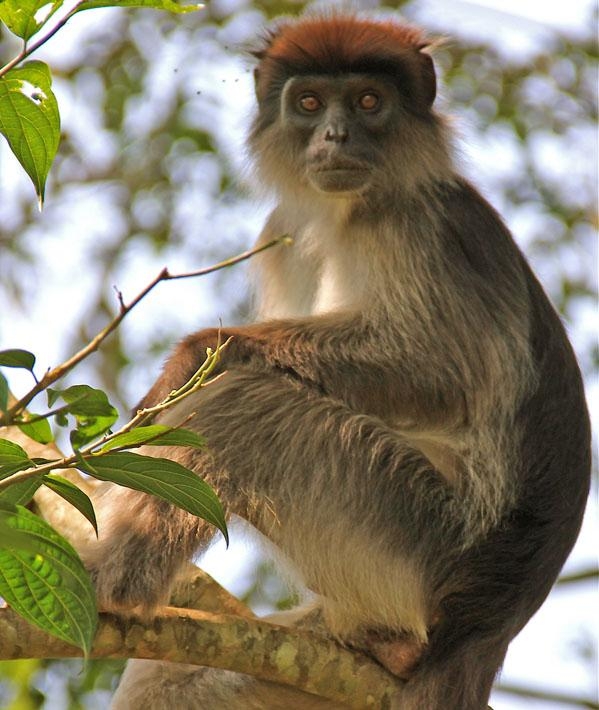Like this article?
Go on, give it a kudu!

Published on September 14 2015
Written by:
Rebecca
994 views
Many people know that Uganda is home to nearly half of the world’s remaining mountain gorillas and, that this number is very slowly on the incline. But, most people are unaware of its severe deforestation problem. One organization, The New Nature Foundation, is dedicated to the preservation of the forests in and around Kibale National Park. If you’re considering visiting Uganda and/or are passionate about preserving primate habit, you’ll want to know more about what they’re doing. And, if you’re in the greater Denver area this October, why not attend their fund-raiser to support this great cause?
YOU can help continue this important work! Please learn more about the issues on NNF’s website, newnaturefoundation.org, and consider making a tax-deductible donation. If you’re in the Denver area, please join us at the Art, Apes & Harmony event on October 13th at the Infinite Monkey Theorem winery. Live music, great food & wine and a silent auction featuring contemporary and antique African art & other outstandingly unique treasures.
Tickets online – hope to see you there!
Kibale National Park is made up of rainforest, swamp, savannah and riverine habitats, and also includes the last substantial tract of premontane forest in East Africa. The park is home to the last viable population of the Ugandan Red Colobus, and the largest contiguous population of Eastern Chimpanzees. Ten other species of primates are also found within Kibale’s magnificent expanse, as well as elephants, antelope and golden cats. Tragically, the entire ecosystem is being impacted by both legal and illegal fuel-wood collection by an ever-growing population.

According to the Government of Uganda, 95% of people around Kibale rely exclusively on wood for energy. Less than 3% of the population in districts where NNF works have electricity, so this wood reliance will continue into the foreseeable future. Forest fragments outside the park have been almost entirely depleted due to expanding human activities, forcing people to put greater pressure on Kibale for their fuel-wood needs. Uganda’s National Environment Management Authority predicts that the country’s forests will be completely depleted by 2050, according to the UN, the need for a proactive solution to this energy crisis in Uganda is “more than urgent”.
While small-scale wood collection was once sustainable, the current habitat degradation is closely linked to the extremely high population growth rate in Uganda, currently 3.24%. The country already has one of the world’s highest growth rates, and is expected to have the highest growth rate within the next few decades.
NNF’s programs, active around Kibale since 2006, were created specifically to address this fuel-wood crisis. The Kibale Fuel Wood Project and Kibale Eco-Char Initiative provide education and empowerment to Kibale’s neighbors. Teaching people how to build their own stoves, cook with biomass briquettes and provide fuel for their families while improving their health and conserving habitats fosters the sustainable behavioral changes needed to protect Kibale. In 2014, NNF’s programs engaged more than 26,000 citizens around Kibale and saved more than 1.5 million kilos / 3.3 million pounds of wood, most of which would have come from wildlife habitat.

The New Nature Foundation strives to conserve wild animals and wild places through education, empowerment, and an emphasis on creative solutions that promote people living in harmony with nature. NNF works in Uganda and Vietnam.
Has been on: 20 safaris
© Your African Safari Ltd, All rights reserved.
Your African Safari is a safari-planning and safari review site. It was created to help support a healthy African wildlife population. All reviews are vetted before being approved and only ethical tours are published